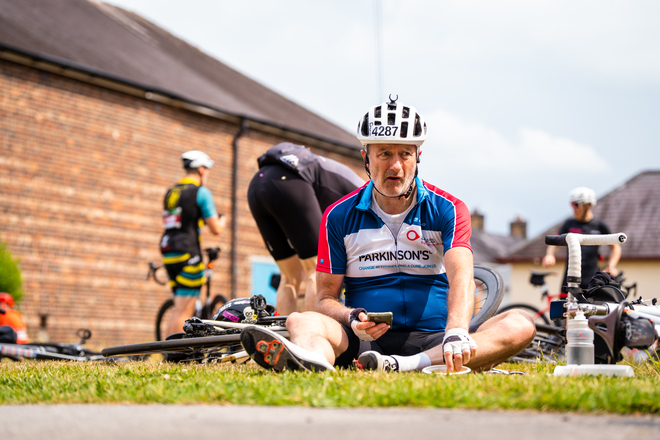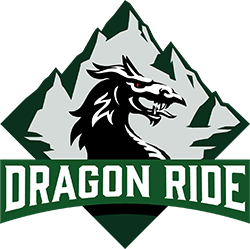RECOVERING FROM A SPORTIVE: WHAT TO DO AFTER YOU COMPLETE THE DRAGON RIDE
 By Ed Laverack
By Ed Laverack
Recovering after a big cycling event is crucial to help your body repair and prepare for future activities. Here are some tips to guide your recovery process:
Immediate Post-Event Recovery
After finishing the ride, resist the urge to sit down right away to avoid seizing up. Take a leisurely five-minute stroll around the event village to scope out what’s happening. Then, relax, refuel, and soak in your achievement!
Replenish lost fluids by drinking water or an electrolyte drink. Hydration is key to recovery as it helps to restore the body’s fluid balance. Hypotonic and isotonic sports drinks are appropriate when rapid fluid replacement is the main priority.
Consume a mix of carbohydrates and proteins within 30min-4hrs post-ride to replenish glycogen stores and repair muscle tissues, this is when glycogen replenishment is at it’s peak. A 3:1 or 4:1 ratio of carbs to protein is often recommended, e.g 140g Carbs and 35g Protein. Examples include a recovery shake, a banana with peanut butter, or a sandwich with lean meat if you can stomach it. Generally liquids are easier to digest post exercise. Glycogen recovery takes, on average, 20hours but depends on the severity of glycogen depletion, amount consumed during exercise and muscle damage. Don’t be surprised if recovering completely from the Dragon Ride takes upwards of 5-7 days though, it’s a big ride!
Short-Term Recovery
Perform gentle stretching exercises to maintain flexibility and reduce muscle tightness, particularly lower back and hip flexor stretches!
Prioritise sleep and rest to allow your body to repair and regenerate. Aim for 7-9 hours of quality sleep.
Did you know: Scientific research now suggests that Ice baths or cold plunges can hinder adaptation from strength and endurance exercise (although they do feel good once you get out!)
Allow yourself at least 2 days of easy riding or even complete rest from riding, your future self will thank you as you absorb the accumulated stress!
A week later…
Engage in low-intensity activities such as walking to promote blood flow and reduce muscle stiffness without adding significant strain.
Continue to eat a balanced diet rich in fruits, vegetables, lean proteins, and healthy fats to support overall recovery and health.
Pay attention to any signs of overtraining or injury. If you’re experiencing excessive fatigue or pain, consider taking additional rest or consulting a healthcare professional.
Long-Term Recovery and Maintenance
Ease back into your regular training routine gradually. Start with shorter, less intense rides before ramping up the volume and intensity.
Take time to mentally recover by engaging in relaxing activities and spending time with friends and family.
Start planning for your next event or maybe planning to improve your time for one of next years Dragon Ride routes!
By following these recovery strategies, you can ensure that your body recuperates effectively and is ready for future rides!
